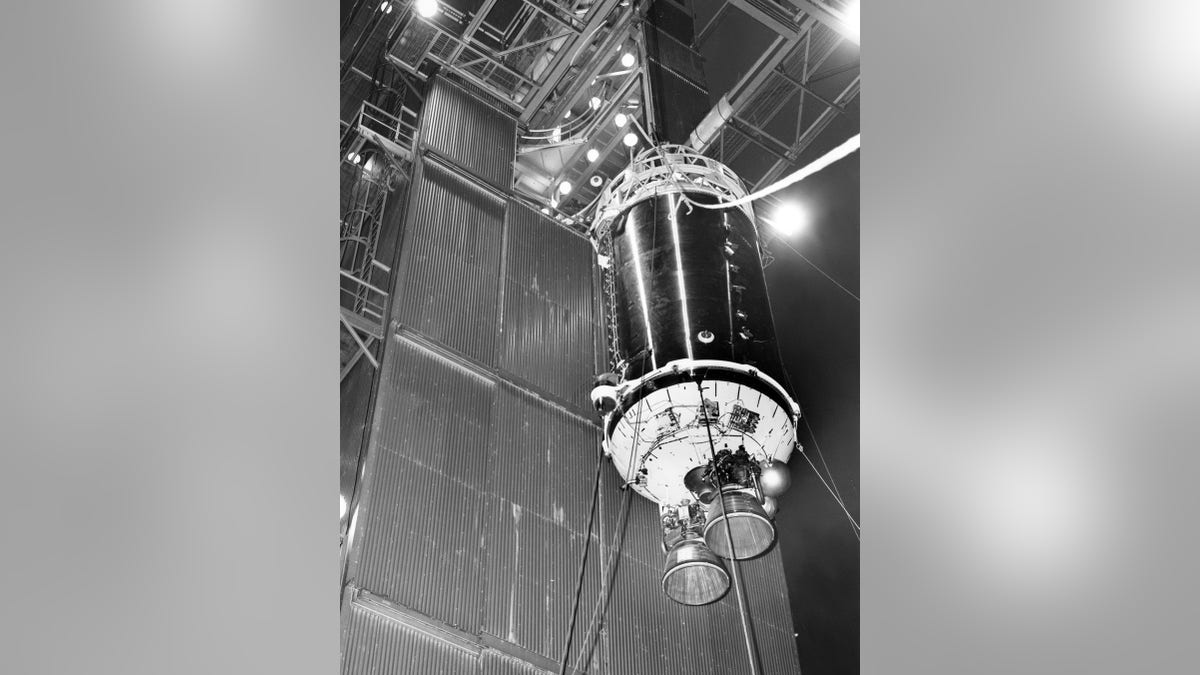Fox News Flash top headlines for December 2
Fox News Flash top headlines are here. Check out what's clicking on Foxnews.com.
The mystery is finally over — the space object that was captured by Earth's orbit is indeed a rocket booster from the 1960s, NASA confirmed.
On Wednesday, the government space agency said the object known as "2020 SO" is not an asteroid, but rather a part of a Centaur rocket booster from the Surveyor 2 spacecraft, which launched toward the moon in 1966.
“Due to extreme faintness of this object following [Center for Near-Earth Object Studies] prediction it was a challenging object to characterize,” said Vishnu Reddy, an associate professor and planetary scientist at the Lunar and Planetary Laboratory at the University of Arizona, in a statement. “We got color observations with the Large Binocular Telescope or LBT that suggested 2020 SO was not an asteroid.”

This 1964 photograph shows a Centaur upper-stage rocket before being mated to an Atlas booster. A similar Centaur was used during the launch of "Surveyor 2" two years later. Credit: NASA
MYSTERIOUS OBJECT THAT COULD BE 1960S ROCKET BOOST WILL FLY PAST EARTH TODAY: HOW TO VIEW IT
“This conclusion was the result of a tremendous team effort,” Reddy added. “We were finally able to solve this mystery because of the great work of Pan-STARRS, Paul Chodas and the team at CNEOS, LBT, [Infrared Telescope Facility], and the observations around the world.”
On Tuesday, the rocket booster made its closest brush with Earth, when it came within 50,000 kilometers (31,000 miles) of the planet, according to Virtual Telescope Project founder Gianluca Masi.
NASA has posted a video of 2020 SO's looping orbits around the Earth.
Unfortunately, the Surveyor 2 never completed its journey, crashing on the lunar surface on Sept. 23, 1966. However, the Centaur booster "sailed past the Moon and disappeared into an unknown orbit about the Sun," NASA said previously.
The rocket booster was initially discovered by the Pan-STARRS survey on Sept. 17, 2020 and announced two days later.
2020 SO initially "slowly drifted" into Earth's Hill sphere on Nov. 8, 2020, and will remain there for roughly four months before it goes back into orbit around the sun in March 2021.
